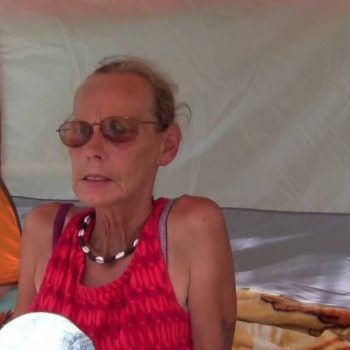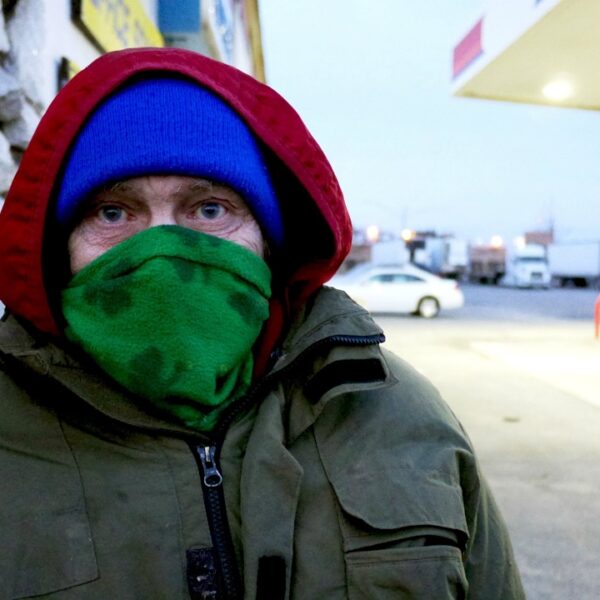I first met Connie while producing a VR180 video on an Oakland Tent City Homeless Encampment you can watch here.
Late 2015, a nonprofit that was housing Connie and her kids as them to vacate the apartment there were living in. The owner wanted possession of the property. Because the nonprofit didn’t have alternative housing solutions for her family, Connie and her children ended up in a motel at the cost of $100 a day, which they could not afford. The family downgraded to a sleazy motel and then eventually ended up living in Connie’s van.
Connie asked one of her brothers to take care of her youngest while her older two children went on their own. Connie then bounced from couch to couch. Connie says she met a guy and eventually landed at a tent city in Oakland, California.
Connie has applied for subsidized housing just to be turned down so much that depression set in, and she eventually gave up looking. The social services sector does not make it easy for people to get the help they need. Homeless services are probably the only industry that exists even after repeatedly turning people away. For homeless people, seeking help just to be turned away time and time creates learned helplessness. No one wants to be homeless. They just give up.
Connie receives $900 a month yet the cheapest studios in Alameda County start at $1,200, and landlords require income to be three times the amount of the rent. Renters have to have good credit. Connie also has a felony, which makes it nearly impossible for her to find employment or a place to live.
Connie’s children offer to help but Connie doesn’t want to put her burden of homelessness onto one of her children. Connie says they worked hard to get where they are and she believes it would not be fair for them to have to help her.
I adore Connie, and I ao so very grateful she shared so openly and honestly about the reality of homelessness and what it’s like living in a tent encampment. I spent a good amount of time with her over the week. I had no idea she was using drugs.
Connie had 13 years sober before relapsing. Connie says she knows better but the real truth about addiction is people abuse drugs to escape pain. People need to understand that homelessness is hard to do sober. Addiction takes away people’s willpower.
UPDATE from Derrick: Connie was “Crashing” from medical and mental fatigue so she decided to take up an offer of housing from her daughter. Shortly after settling in, Connie’s daughter gave birth to a baby girl. Connie has become a Live-In Grandmother and spends many an hour Crocheting baby clothing and blankets. She still has her medical issues, but being indoors with ACCESS to heat and a real bed, makes things much less stressful these days. Connie is sober because she now has a REASON to stay sober.
Your voice can help end homelessness. If we do not fix the affordable housing crisis, homelessness will continue to get worse. Click here to tweet, email, call, or Facebook your federal and state legislators to tell them ending homelessness and creating more affordable housing is a priority to you.












